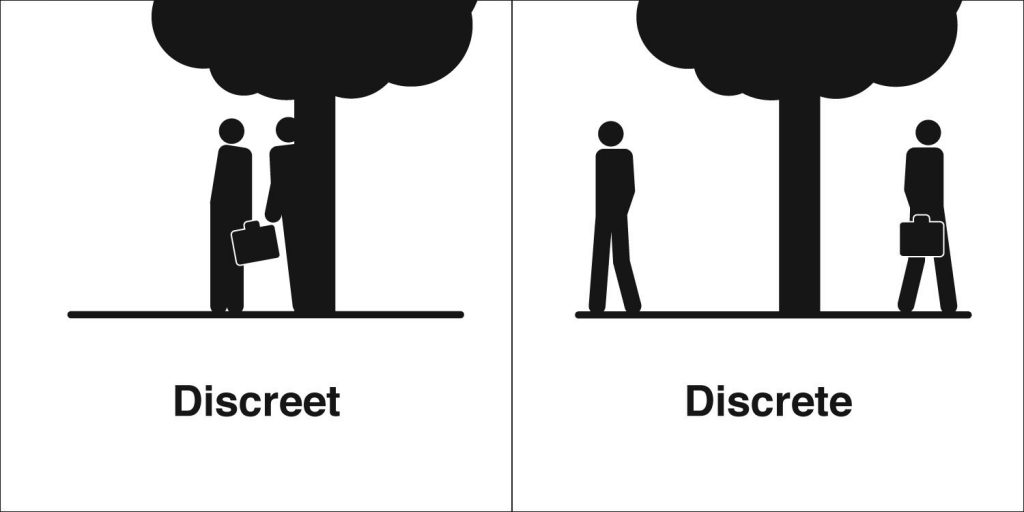DISCREET: an adjective, meaning “cautious, reserved, modest, or prudent, often in speech and behavior.”
For instance, a “discreet” person is one who knows when not to speak about sensitive subjects.
For instance, “The girl was discreet when she ate the cookies her grandmother gave her so her mother wouldn’t find out.”
DISCRETE: an adjective, meaning “distinct, separate, unrelated.” Things that are individual, detached, or separate from one another are “discrete.”
For example, “When earthquakes were recorded in small, discrete clusters in Zamunda, scientists paid attention.”
Note: There’s also a branch of mathematics which studies structures that are fundamentally DISCRETE rather than continuous, but we’re not going to worry about that here.
“Discretion” is the noun corresponding to discreet, so discretion is a cautious, reserved, or modest manner; the word can also mean freedom to act on one’s own judgment. On the other hand, discrete‘s corresponding noun is “discreteness.”
DISCREET and DISCRETE come from the same source: the Latin “discrētus,” for “separated or distinct.”
Many people are unaware that there are two distinct words . How do you remember which one to use? Here’s a little memory trick:
If you are modest in spEEch, you are discrEEt.
The two Es in discrEtE are separated and detached, just like its definition.

Need help with tricky words? Try GrammarPlanet — it’s FREE!
